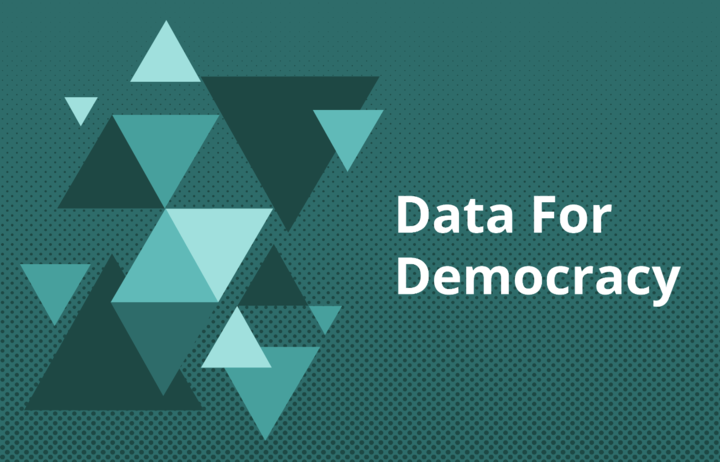Concern for AI’s Impact on Democracy Transcends Political Divides October 24, 2023
An opportunity for Congress to showcase bipartisanship amid growing dissatisfaction with democracy

By: Grayson Wormser
Today, prominent AI innovators, academics, and labor leaders will gather on Capitol Hill to continue conversations around the promise and guardrails Congress should consider placing on Artificial Intelligence. Beyond their informative nature, these meetings provide a rare opportunity for our elected representatives to work across the aisle on an issue that will not only have a decisive impact on the lives of Americans but also on the preservation of our democracy.
As a data, insights, and research firm, we specialize in exploring issues that impact our democracy, including public opinion and educational efforts around AI. Our latest nationwide omnibus survey—CitizenOmni—reveals that three out of four Americans support Congress creating laws that place limits on artificial intelligence(1). This is not surprising given increasing concern about the potential negative effects AI platforms (such as ChatGPT) might have on our democracy. Two-thirds of Americans, including 60% of self-identified Democrats, and 70% of both Independents and Republicans, agree that the widespread availability of AI platforms will lead to more false or misleading information that could directly influence democratic processes(2). This is an 8% increase from when we asked this question in June and demonstrates cross-partisan concern(3).
In the meantime, we’ve also observed worrisome trends in the health of our democracy. Over the last five months, Americans’ dissatisfaction with democracy increased from 42% in April to 57% in September(4). Furthermore, only one in ten (12%) voters believe democracy is becoming stronger, with at least one-third of the electorate continuing to express doubts about the 2024 election.
As the 2024 U.S. presidential race starts to heat up, the potential negative implications AI technologies could have on our elections, particularly around the rapid spread of misinformation, are beginning to come into focus. As if borrowing a page directly from the playbook used by Russian operatives in the 2016 election, other foreign adversaries—including accounts suspected to be linked to the Chinese Communist Party—are already starting to use the technology to sow further divisions and spread disinformation. The Republican National Committee released a video earlier this summer after President Biden announced his re-election bid with AI-generated images of doomsday scenarios, deceiving some voters with only a faint disclaimer in the top corner of the video.
Indeed, there are major potential benefits AI could bring to strengthening our democracy if used appropriately. The ability to create content rapidly, including press releases and campaign speeches, for example, could significantly help democratize the process of running for political office, allowing smaller campaigns with less funding to keep up with traditionally well-funded incumbents. It could also allow smaller campaigns to raise more grassroots money with even more tailored content, decreasing the barriers to entry for more diverse candidates to run and win elected office.
However, Americans across the political spectrum currently view AI and ChatGPT as harmful to our democracy. Surveys from July and September of this year reveal that only around one-third of voters view AI as benefiting our democracy, with a plurality—44%—finding the technology harmful. Similar trends can be seen in how voters perceive ChatGPT. Perhaps not surprisingly, this concern appears to be rooted in AI’s capacity to increase the amount of false and misleading information and digital content online, both rated as the top two ways Americans think AI will impact our democracy.
Yet, more in depth research is needed to understand the ways in which AI will disrupt civil society and the health of our democracy, as well as the educational efforts needed to influence public opinion. If you’re interested in exploring this topic or other issues that impact our society, reach out. Our team of expert researchers specialize in designing custom research programs that enable our partners to uncover the true opinions and attitudes of Americans.
Endnotes
- Citizen Data N=1,001 poll of registered voters nationwide from September 13-20. MOE 3.1%. Results are weighted on key demographics.
- Citizen Data N=1,003 poll of registered voters nationwide from July 19-21. MOE 3.1%. Results are weighted on key demographics.
- Citizen Data N=1,004 poll of registered voters nationwide from June 13-14. MOE 3.1%. Results are weighted on key demographics.
- Citizen Data N=1,001 poll of registered voters nationwide from April 14-25. MOE 3.1%. Results are weighted on key demographics.
Share this report
Americans’ Climate Concerns: What The Data Shows
Climate change remains a critical global issue with far-reaching implications for our planet's future. In our most recent nationwide omnibus survey, we sought to gauge the extent of Americans' concerns regarding climate change and their impressions of the response by elected officials.
